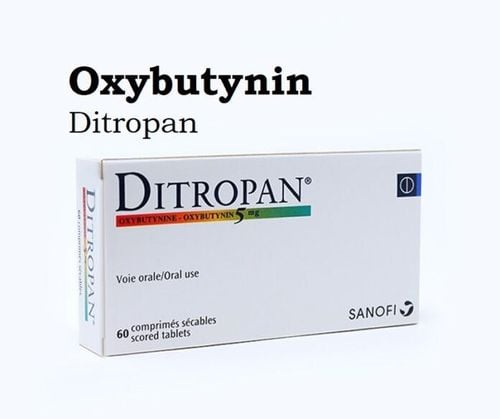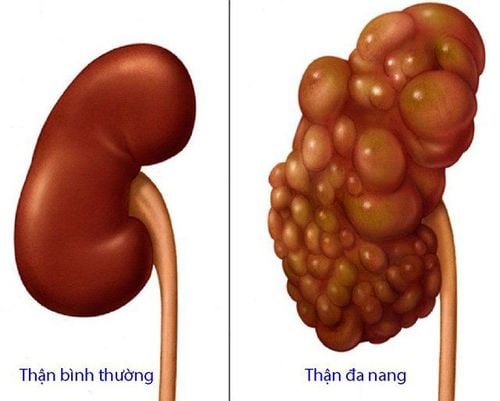This is an automatically translated article.
Polycystic kidney disease is hereditary? According to medical experts, polycystic kidney disease is uncommon in children under 10 years old, but when it occurs, it can cause chronic kidney failure, which is life-threatening if not detected in time. Polycystic kidney disease has a very low chance of being unilateral.1. Understanding polycystic kidney disease in children
Polycystic kidney disease is understood as a condition in which two kidneys appear many large and small irregular cysts in the medulla and cortex. The cause is usually an autosomal dominant genetic factor and can also be congenital.
Pediatric polycystic kidney disease is inherited in an autosomal recessive genotype, is uncommon and is usually detected soon after birth at birth or before 10 years of age. Polycystic kidney disease has a very low chance of being unilateral.
To learn more about heritability in polycystic body disease, please see HERE.
2. Symptoms that often appear in children with polycystic kidney disease
Pain in the hip, back or flank, back, or acute renal colic (possibly due to stones or bleeding in the cyst). Abdominal discomfort due to the kidney gradually enlarged leading to the situation causing pressure. Blood in the urine due to infection or bleeding in the cyst. Nocturia, the ability to concentrate urine is reduced. The body is thin and green due to blood in the urine or kidney failure. Oliguria or anuria at the onset of acute or chronic renal failure. It is important that if detected late, there is a risk of death.
3. Unpredictable complications of polycystic kidney disease in children
Early detection of polycystic kidney disease will help timely treatment and is the best measure to avoid dangerous complications later on. It is important to understand the severity of the disease and about some of the complications caused by polycystic kidney disease in children.Hypertension This is the most common complication of the disease, many people think that stress and anxiety cause high blood pressure, but you are wrong about that. High blood pressure is difficult to recognize. There is only one way to regularly check blood pressure, thereby having timely treatment to avoid further damage to the kidneys and reduce the risk of some heart-related diseases such as: heart failure, heart attack and worse, stroke.

Kiểm tra huyết áp cho trẻ
Kidney functions decrease or fade away Losing function means losing the ability to remove waste products from the blood and maintain the body's balance of fluids and substances. Moreover, at this time, the toxins will accumulate more and more and gradually cause some diseases. Therefore, the best way to protect the kidneys is to detect polycystic kidney disease early in children for timely treatment.
Facilitating some liver cysts to thrive When the disease has developed strongly at a certain stage, it is inevitable that cysts will develop. In women, cysts usually grow faster than in men because certain substances cause the cyst to grow faster in women.
Causes brain aneurysm When an artery in the brain bulges, it can cause some blood vessels to burst, leading to bleeding that is very dangerous to the patient's life. A number of new studies have shown that people with polycystic kidney disease are more likely to have aneurysms than those without the disease. More dangerous when an aneurysm is accompanied by increased blood pressure, it can cause a stroke and lead to death.
Causes heart valve abnormalities Most people with the disease can affect and cause some diseases related to the heart valves, making the valves not open and close properly, which is very dangerous.
Therefore, when there are symptoms that are suspected to be caused by polycystic kidney disease in children, take your child to a doctor for early detection of the disease.
Currently, at Vinmec Times City International Hospital, a very modern technique of urinalysis is applied to evaluate kidney diseases. L-FABP technique allows early diagnosis of renal failure. Up to now, Vinmec is the first place in Vietnam to apply this test according to Japanese technology on a modern automatic AU 680 testing machine, giving quick and accurate results.
This article is written for readers in Hanoi.
Please dial HOTLINE for more information or register for an appointment HERE. Download MyVinmec app to make appointments faster and to manage your bookings easily.













